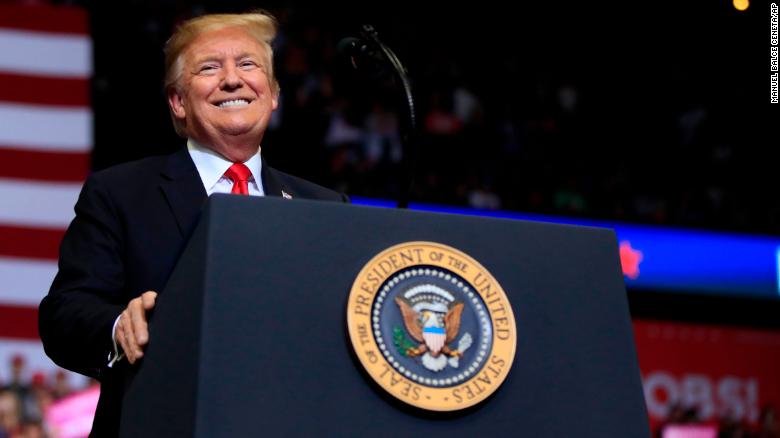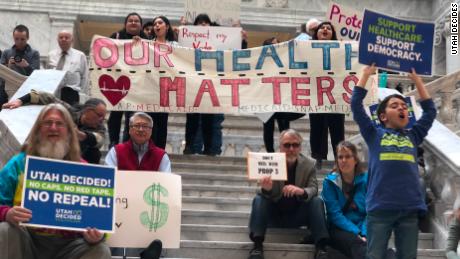(CNN)The Trump administration on Friday granted a Utah request for a more limited Medicaid expansion, effectively short-circuiting a ballot measure approved by voters in November.
The approval allows Utah to expand its program to those who earn up to 100% of the poverty level, or about $12,500 for an individual and $25,750 for a family of four. Under Obamacare's Medicaid expansion provision, states have extended health insurance to those making up to 138% of the poverty level.
Also notable is that Utah can now cap enrollment of newly eligible residents if state funding runs out; currently, Medicaid must accept anyone who qualifies.
And the approval does not provide the higher level of federal funding that accompanies full expansion under Obamacare, though Utah officials have said they intend to seek the enhanced match soon. Several red states are looking to partially expand Medicaid, but want the richer support from Washington, DC, for the newly qualified.
The approval is the latest step in a busy health care week for the Trump administration.
On Monday, the Justice Department said the entire Affordable Care Act should be struck down in a filing with a federal appeals court, a dramatic reversal of a stance it took last year. Two days later, a federal district court judge blocked the administration's efforts to allow states to impose work requirements on Medicaid recipients.
And on Thursday, another judge blocked its effort to make it easier for small businesses to band together to buy health insurance in so-called association health plans.
Utah's Republican governor, Gary Herbert, and GOP lawmakers last month sought to pare back November's ballot measure by passing legislation that also limits expansion to 100%, seeks additional federal support and imposes more mandates on enrollees. That state law, however, requires additional federal waivers that Utah has yet to submit to the Trump administration.
"This is an important first step in covering vulnerable Utahns in a financially sustainable way," said Herbert. "But it's just a first step. In the coming months, we will submit a detailed proposal seeking a new funding arrangement with CMS [Centers for Medicare & Medicaid Services] that will decrease the state's share of the costs, provide the federal government with assurances on its costs, and provide the state with additional flexibility to manage the program."
Friday's action means some 70,000 to 90,000 newly eligible residents can start applying on April 1, state officials said. Medicaid already covers more more than 312,000 Utahns.
But it leaves out more than 50,000 people who would have qualified under the ballot measure, said Andrew Roberts, spokesman for Utah Decides, which supported the November effort.
Other community advocates also decried the move, saying it would leave needy residents without access to medical care and end up costing the state more money.
"Limiting the number of people who can enroll in the Medicaid program could leave many vulnerable Utahns shut out from health coverage when they need it most," said Jessie Mandle, senior health policy analyst for Voices for Utah Children.
Utah will have to shell out more state funds to cover the newly eligible than it would have had it expanded Medicaid like other states. The federal government funds at least 90% of the cost of additional enrollees under the Obamacare provision, while it provides less support to the core Medicaid program -- about 70% in Utah's case. Wisconsin is the only other state that has expanded its program to the poverty level at the traditional federal match level.
Friday's approval also requires certain enrollees to register for employment through the state's online portal, apply for jobs and participate in training. But unlike other states' work requirements, participants will not have to show they are working a certain number of hours a month.




















